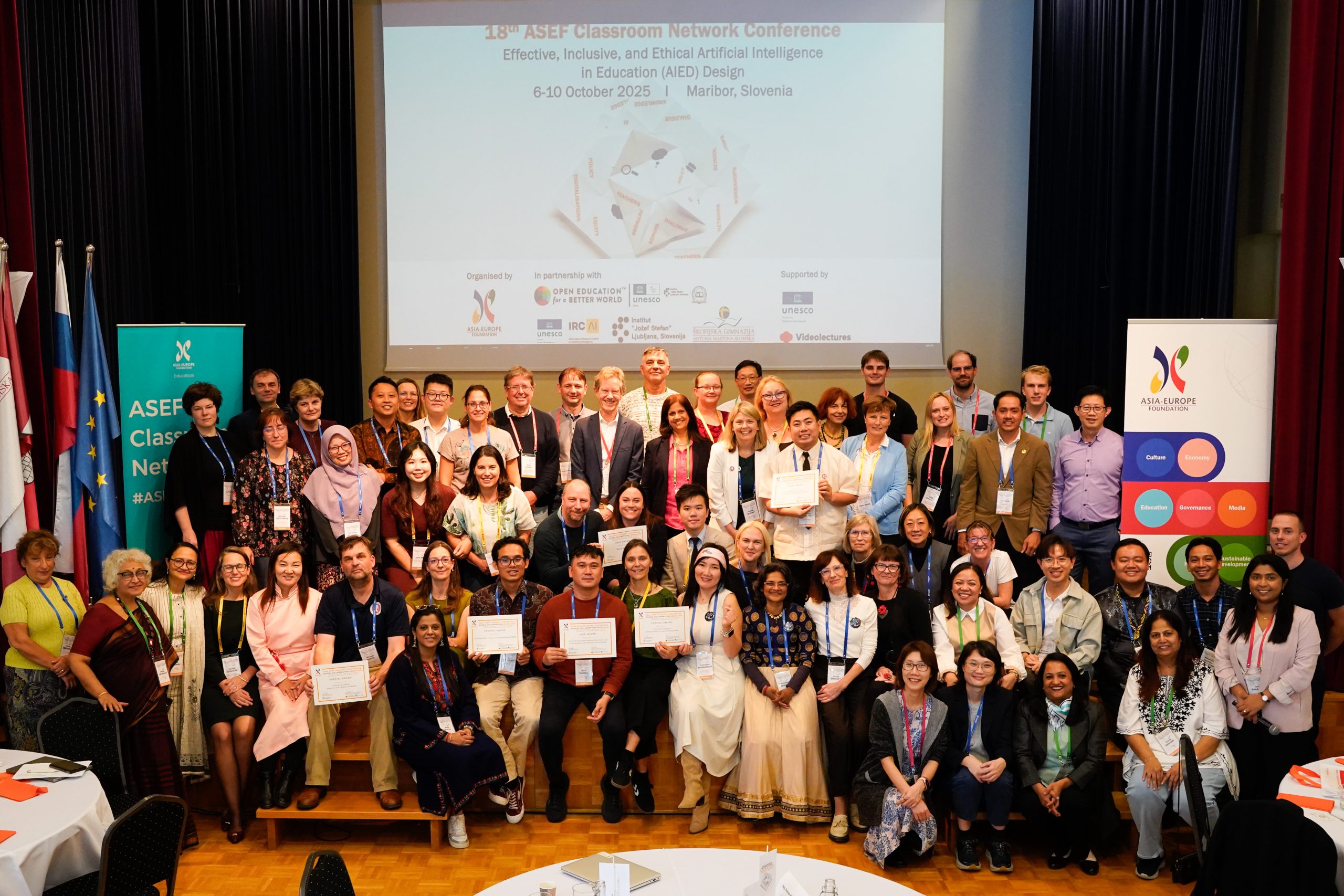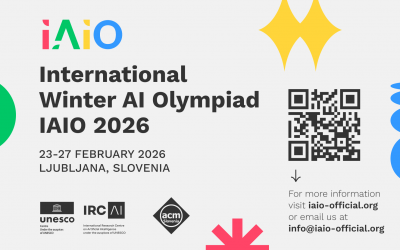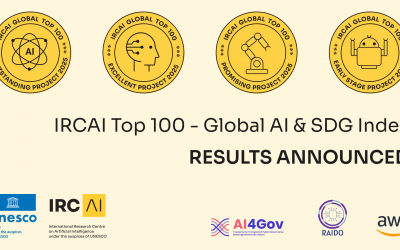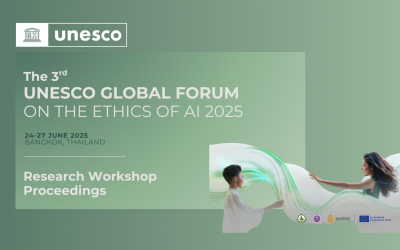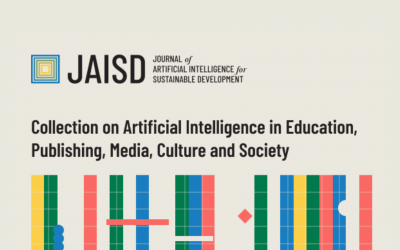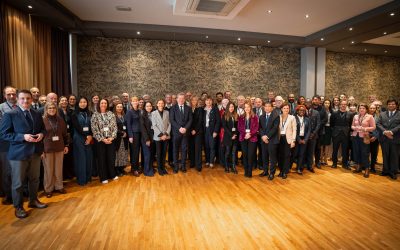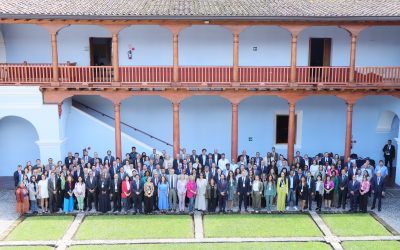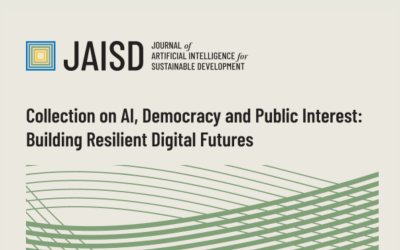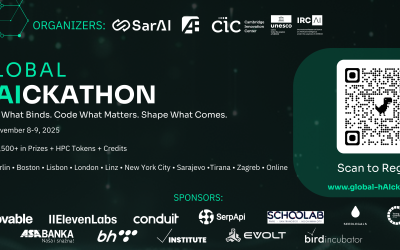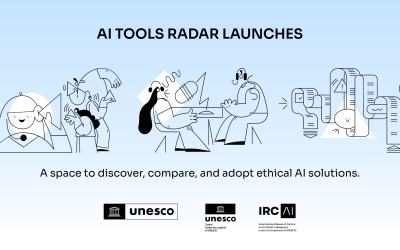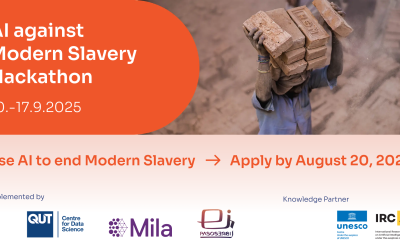“AI will not transform education, people will.” Mitja Jermol, IRCAI Deputy Director and UNESCO Chair on Open Technologies for OER and Open Learning
At this critical moment, as AI in Education adoption accelerates worldwide, IRCAI is committed to ensure that AI remains at the service of education, a fundamental human right (SDG4). The main message from the recent UNESCO’s Digital Learning Week was clear: AI in education must be ethical, inclusive, and aligned with human rights. Building on this global call, IRCAI translated these principles into action at ASEFClassNet18, supporting teachers to integrate AI ethically, inclusively, and responsibly in their classrooms.
Over 100 teachers, education specialists, and AI experts from more than 30 countries across Asia and Europe participated in the ASEFClassNet18 School Collaboration conference, held from 6 to 10 October in Maribor, Slovenia. The event, co-organized by the Asia-Europe Foundation, IRCAI, Open Education for a Better World (OE4BW) programme and the Institute of Anton Martin Slomšek, showcased the latest approaches to AI in classrooms.
The conference featured keynote speeches, panel discussions, workshops, and networking sessions, providing a platform for peer learning, knowledge exchange, and the presentation of Innovative Teaching Practices (ITPs) developed during the seven-month ASEFClassNet programme. IRCAI’s deputy director Mitja Jermol contributed as a keynote speaker and jury member, while Anja Polajnar led the OE4BW sessions on open education and OERs.
The ASEF Classroom Network (ASEFClassNet) programme helps schools engage with AI not only by adopting tools, but by fostering teacher agency, ethical frameworks, and locally relevant innovations. Through its hybrid model, international collaboration, and open-resource design, the initiative equips educators to guide AI use responsibly and has the potential to influence teaching practices and education policy across Asia and Europe.
“Let’s not leave the future of education to algorithms, investors, or policymakers alone. Let’s (re)claim it together.” Dr. Velislava Hillman, Founder of Education Data Digital Sovereignty (EDDS)
The conference explored diverse perspectives on AI in education, particularly the intersection of technology, policymaking, ethics, and pedagogy. Participants gained insights from Singapore, Slovenia, and other countries on integrating AI into classroom learning, promoting digital literacy, and encouraging ethical reasoning in students.
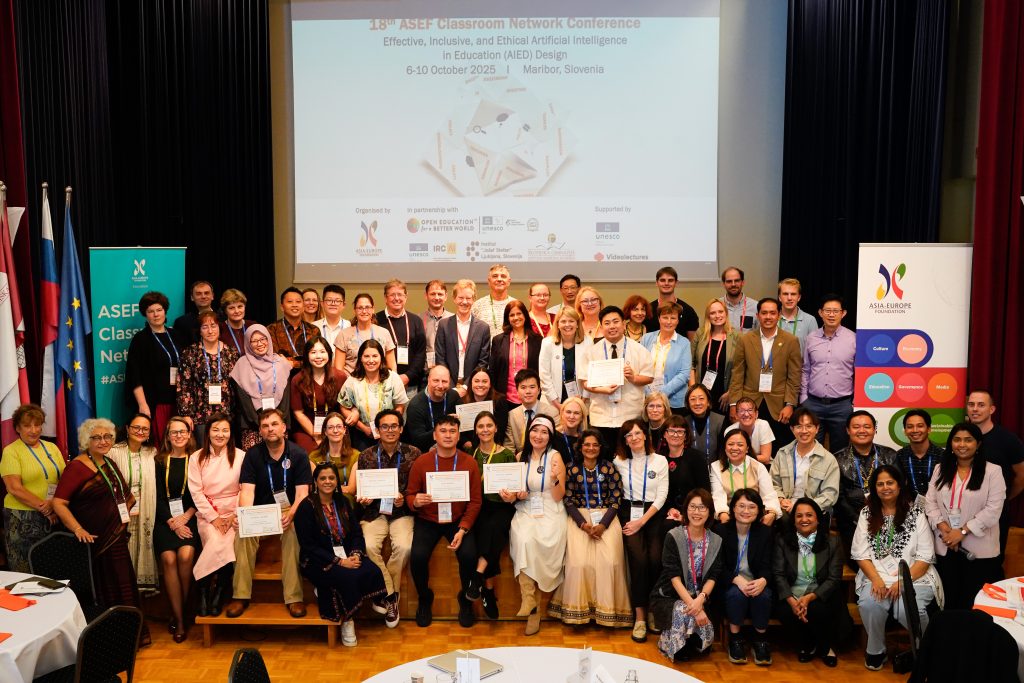
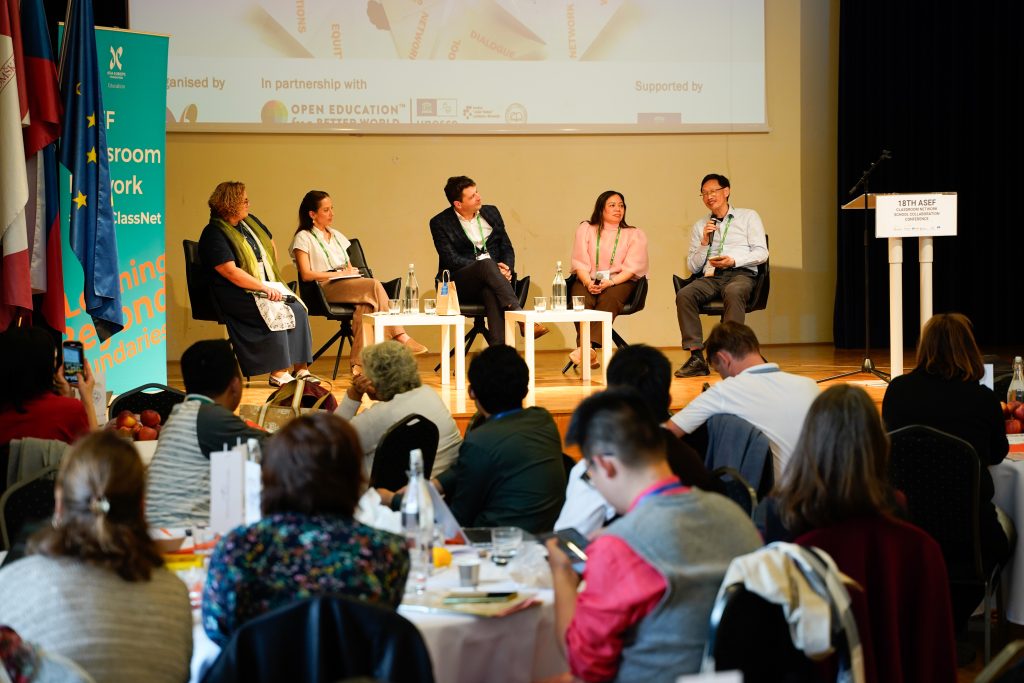
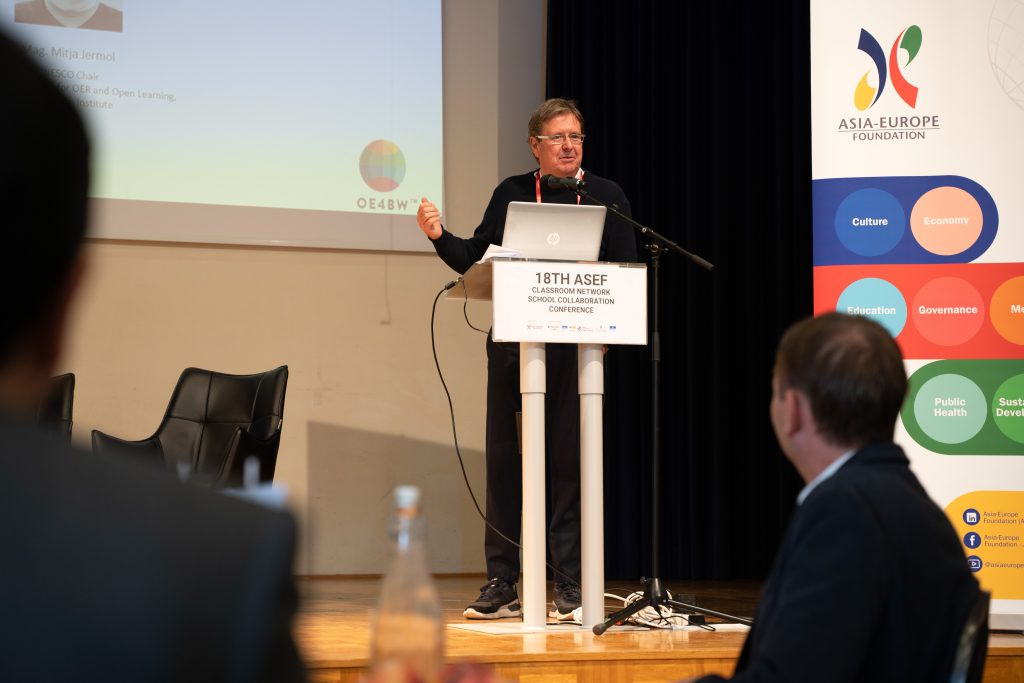
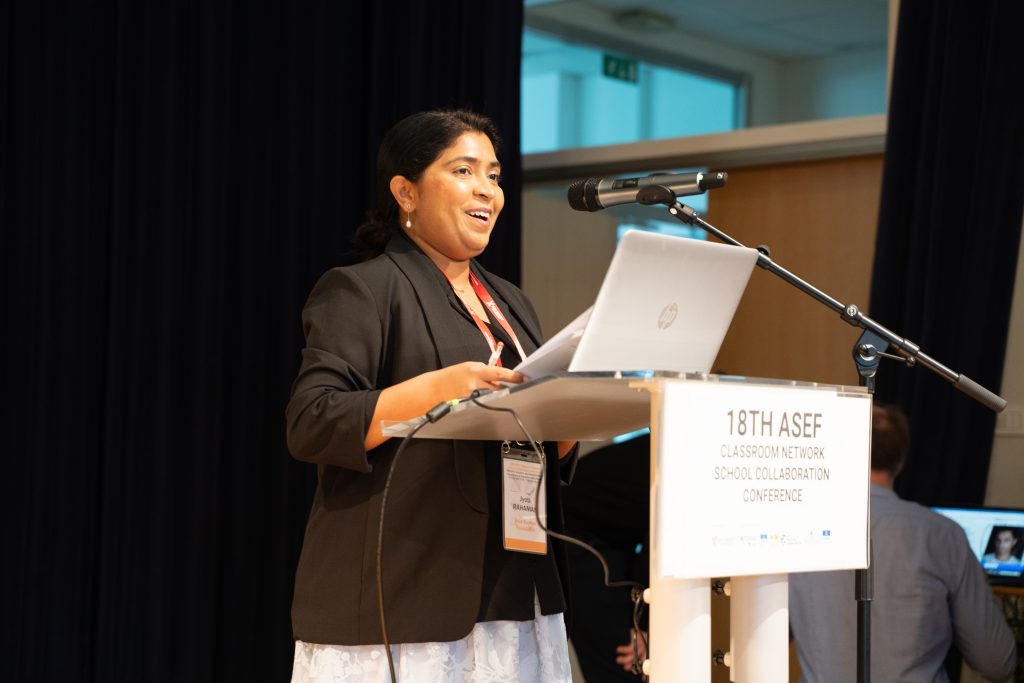
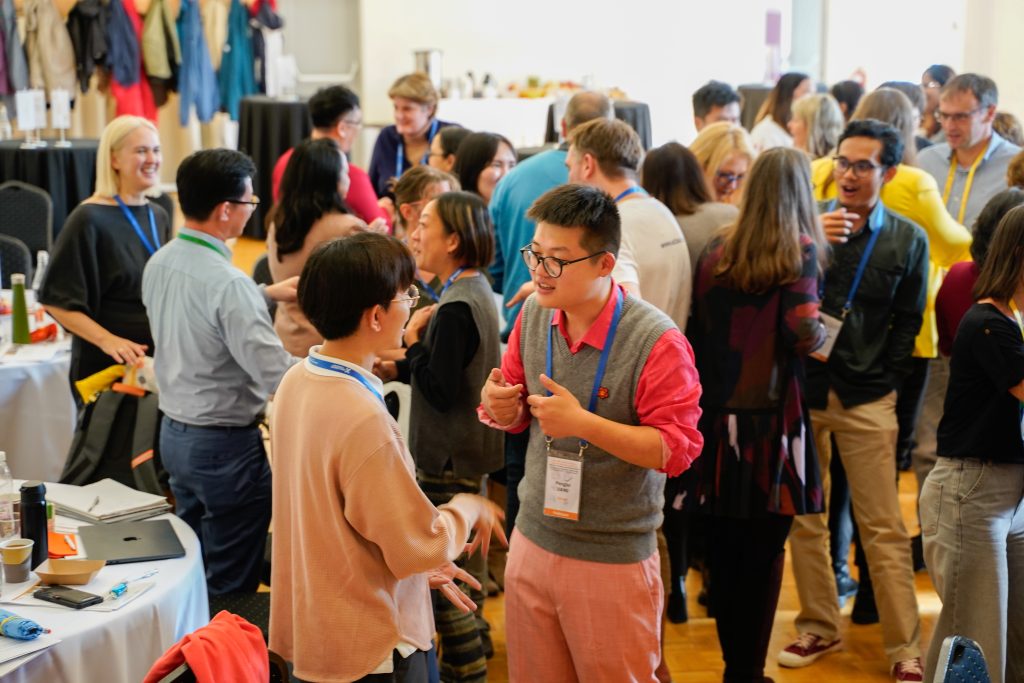
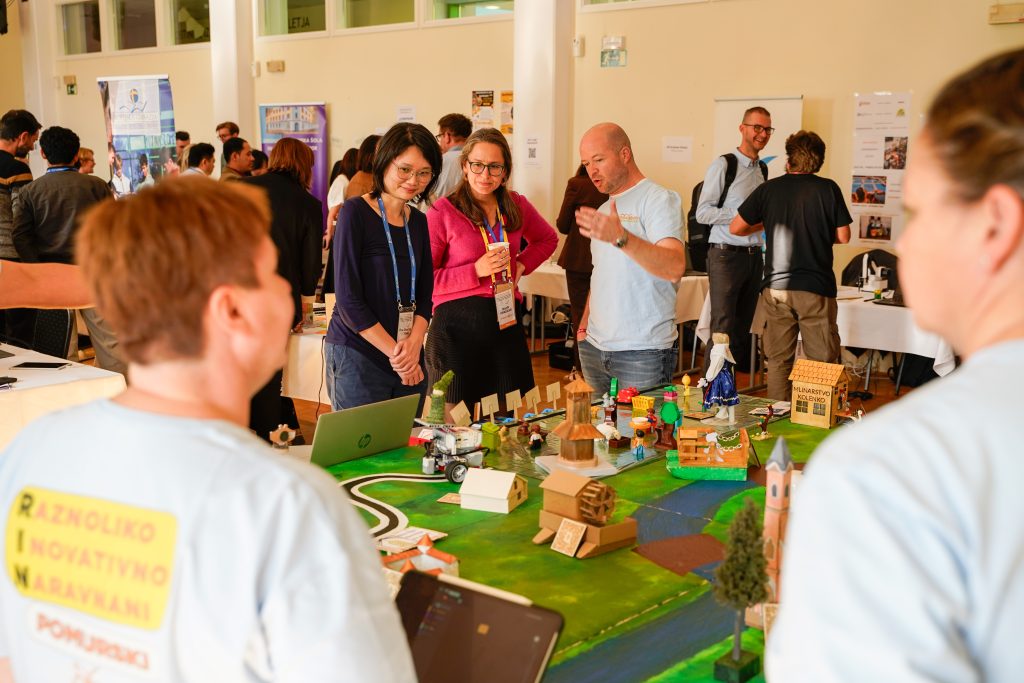
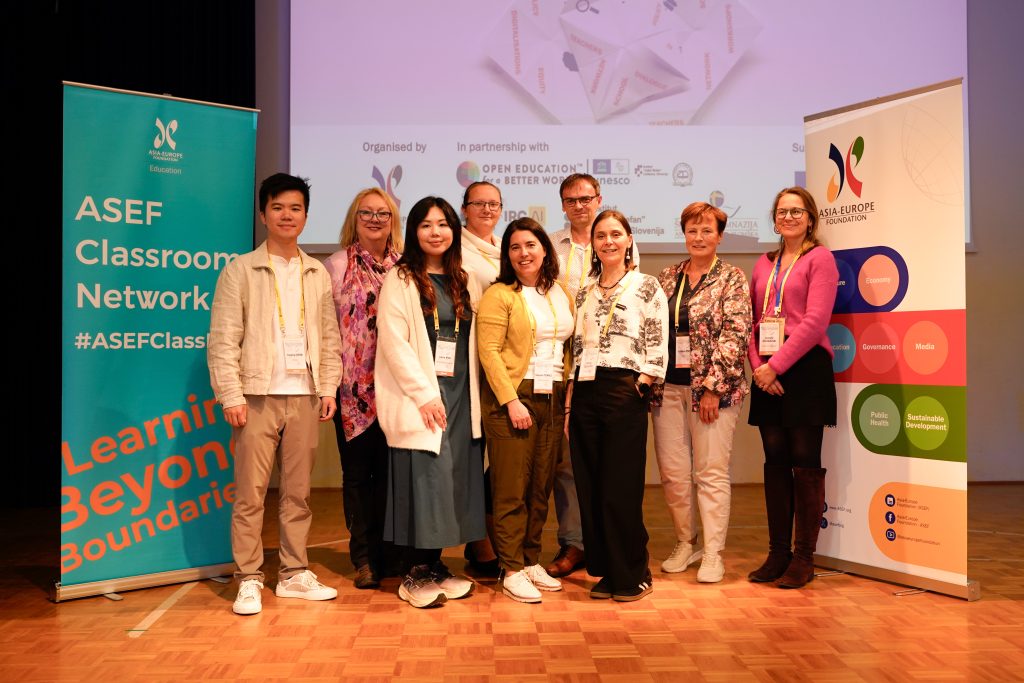
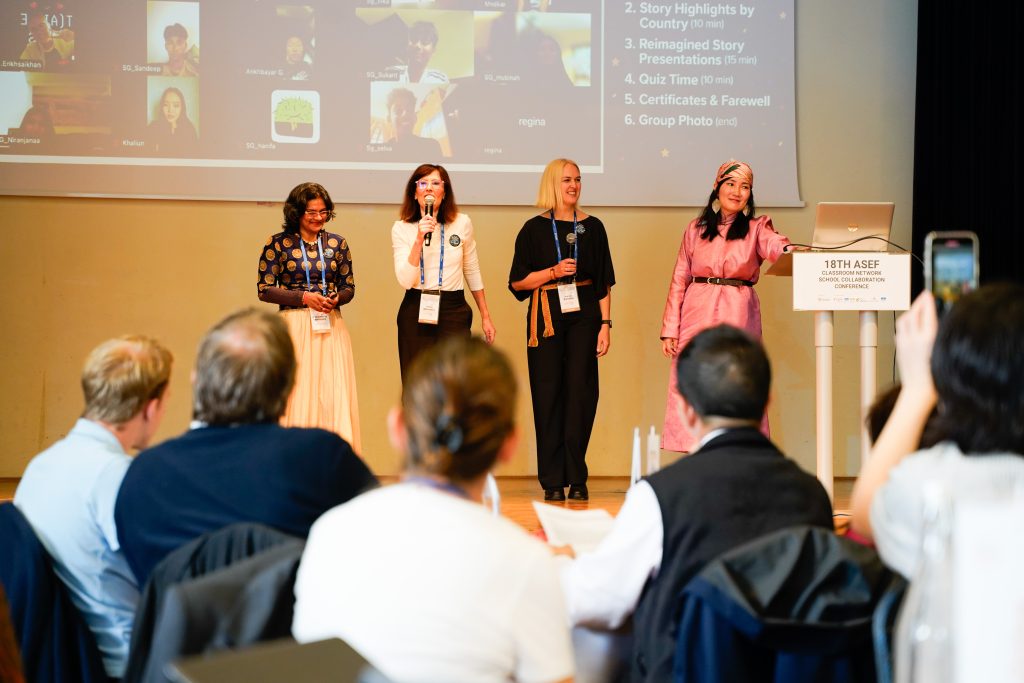
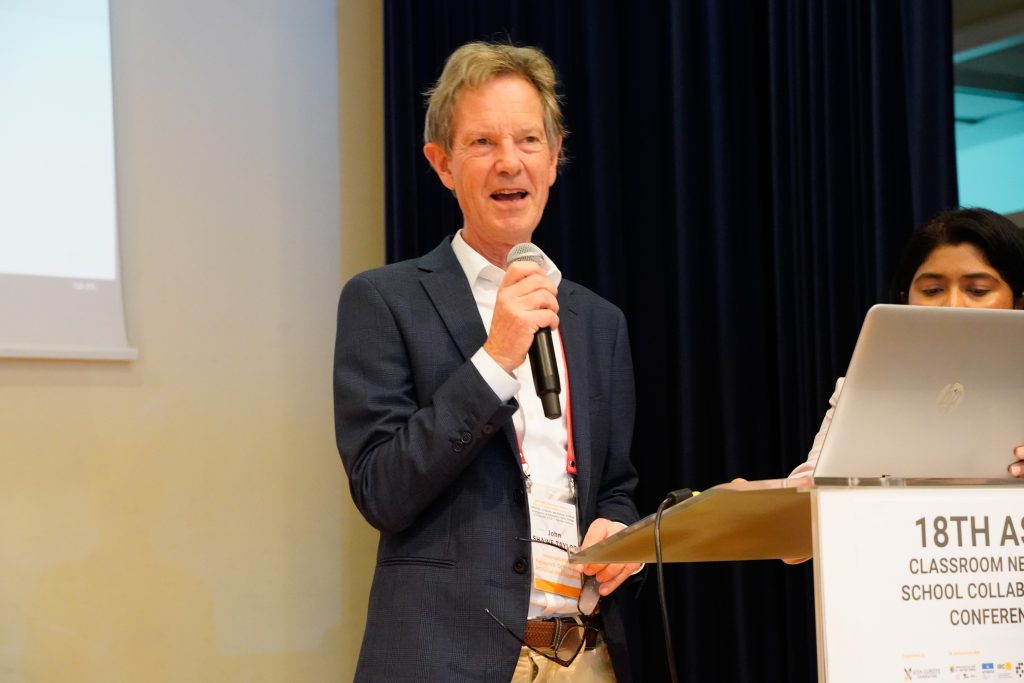
Photo credits: Videolectures.net
On the final day, the conference concluded with an awards ceremony recognizing the most effective and scalable Innovative Teaching Practices (ITPs). Each project demonstrates how AI can be implemented in classrooms across multiple countries, targeting secondary and vocational students, while providing an opportunity for wider adoption.
Gold Award: “The AI Horizon”
Developed by Melania Cini, Laurel Silvester, Dejan Košenina and mentored by Yuqing Long.
Integrates AI literacy and ethical awareness into classrooms in Malta, Australia, and Slovenia, helping students explore sustainability in daily life using AI tools. The project builds teacher confidence to embed AI responsibly across subjects, offering a scalable model for global AI literacy curricula.
Pearl Award: “A Cross-Cultural Civic Project: Evaluating AI through Human Perspectives”
Developed by Natalie Berndt, Mirela Petkova, Edwin Quinosa and mentored by Juliette Bentley.
Links schools in Australia, the Philippines, and Bulgaria through a civic learning project where students use AI tools like Perplexity and Brisk to analyse social and environmental issues. The practice teaches students to evaluate AI-generated content ethically and prepares teachers to guide critical AI use worldwide.
Jade Award: “3D StoryScape”
Developed by Mark Benesio Carace, Andreas Galanos, Parameswari Jayaprakash and mentored by Daniel Gonzales.
Combines storytelling and 3D design with AI tools such as DALL·E, Firefly, and Synthesia to help secondary students in Greece, India, and the Philippines create interactive visual narratives.
Special Award 1: “ Voices Across Borders: Using AI to Learn, Reflect, and Sustain”
Developed by Michael Harvey, Naimh Mc Nally, Yuxin Zheng and mentored by Susana Tomaz.
Connects students in New Zealand, China, and Ireland through an AI-enabled STEM project using Gemini Gems and Co-Pilot agents. By training students to question AI bias in energy data and sustainability, it models global teamwork and culturally aware AI education for replication in other contexts.
Special Award 2: “Folk Tales Reimagined: Bridging Cultures through AI and Storytelling”
Developed by Stasele Riskiene, Vesna Marinčić, Vemalathevey Manikiam, Nomintuul Byambatsogt and mentored by Maria Silva.
Engages students from Lithuania, Slovenia, Malaysia, and Mongolia in reinterpreting folk tales through AI-generated visuals and multilingual storytelling tools. The project improves language learning, fosters cultural understanding, and showcases scalable creative AI use across humanities curricula.
Special Award 3: AI FOOTPRINTS – Traces of Change through STEAM
Developed by Dedy Lucky, Marina Del Barco Molpeceres, Nam Ngo Thanh, Yuanting Liao and mentored by Lena Ang.
Brings together students aged 13–17 from Vietnam, Indonesia, Spain, and Taiwan to use AI and STEAM tools for environmental problem-solving. Students collect and analyse real-world data, co-create AI codes of conduct, and demonstrate how AI literacy can drive sustainability and citizenship education globally.
IRCAI has collaborated with ASEF for the past two years to advance SDG 4 (Quality Education), empowering teachers as leaders in ethical AI integration. IRCAI provides strategic guidance, expertise, and, through OE4BW, open and inclusive approaches to AI in education, ensuring no teacher or learner is left behind in the digital transformation.
The ASEFClassNet programme equips secondary, high, and vocational school teachers across Asia and Europe with knowledge and pedagogical skills to integrate AI thoughtfully and ethically. Spanning over seven months, the programme combines self-learning, collaborative team learning, and classroom implementation.
Rather than simply promoting AI tools, the initiative encourages critical evaluation and creative application. Teachers co-create and test AI-enhanced teaching practices that are context-appropriate, scalable, and sustainable. ASEFClassNet19, the next conference edition, will continue this work with a focus on human-centric AI in education, aiming to empower over 300 educators across Asia and Europe through the main programme and spin-off initiatives.
Learn more about the ASEFClassNet18 conference on the ASEF’s website.
